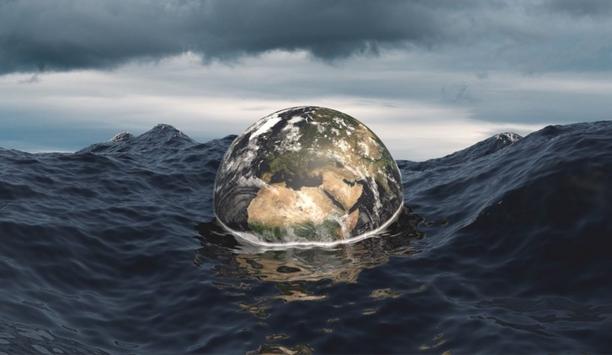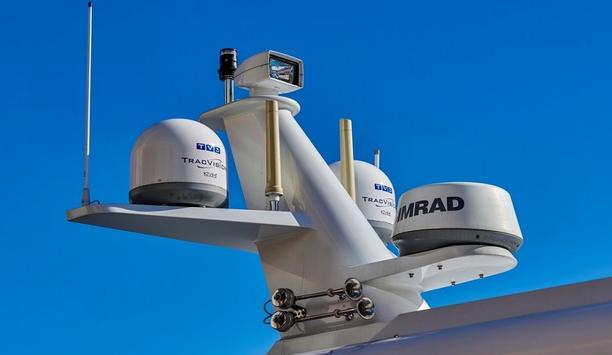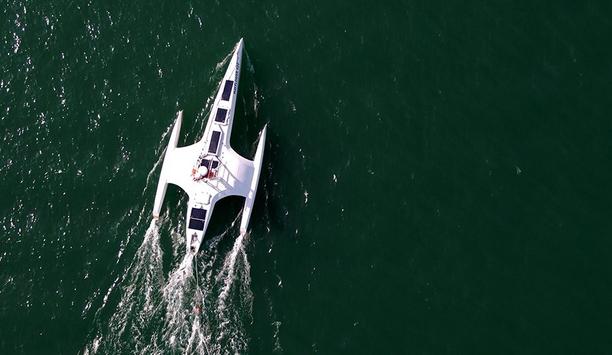Decarbonisation - Harbour insights
Ammonia is gaining traction as a future fuel in the maritime industry, primarily due to its potential to significantly reduce greenhouse gas emissions. A key driver for ammonia's interest is that it can be carbon-free when combusted, which aligns with the maritime industry's increasing pressure to meet emissions regulations. However, most ammonia production currently relies on fossil fuels. Transitioning to "green ammonia" production is crucial for sustainability. If "green ammonia" is produced...
The Dark Fleet refers to a network of vessels that operate outside of standard maritime regulations, often used to transport sanctioned goods such as oil. These shadowy vessels are also referred to by terms such as Parallel Fleet and/or Shadow, Gray or Ghost fleet. The terms are all manifestations of the same thing – ships that are owned, structured, and operated to avoid exposure to sanctions. Fleet of ships “In fact I would prefer that we use the term Parallel Fleet because it m...
Carbon capture and storage (CCS) can contribute to decarbonisation of the maritime industry, especially when combined with other approaches. CCS allows ships to continue using fossil fuels while capturing and storing the emitted CO2. It’s a helpful interim approach if a vessel’s immediate transition to alternative fuels is not feasible due to infrastructure limits or technology constraints. CCS can extend a vessel’s operational lifespan, both reducing emissions from existing v...
Augmented reality (AR) is making waves across various industries, and maritime is no exception. For maritime professionals, AR offers practical, real-time solutions that enhance safety, optimise operations, and improve decision-making both at sea and onshore. Whether it’s helping crews navigate complex environments, assisting in ship maintenance, or providing on-the-job training, AR’s ability to blend digital information with the physical world is proving invaluable in the fast-pac...
As the maritime industry accelerates its journey toward decarbonisation, the focus on alternative fuels has intensified. E-methane E-methane, a synthetic gas produced using renewable electricity and carbon capture, is emerging as a promising substitute for conventional natural gas. This innovative fuel offers a way to significantly reduce greenhouse gas emissions while leveraging existing liquefied natural gas (LNG) infrastructure. For maritime professionals, the potential benefits of e-metha...
The maritime industry, steeped in tradition, is now riding the wave of digital transformation, with big data playing a pivotal role in driving innovation and efficiency. For maritime professionals, the question isn’t whether to embrace big data, but how to maximise its practical benefits. Whether it’s a ship owner, port operator, or related to supply chain logistics, big data has the potential to streamline operations, enhance safety, reduce costs, and bolster profitability. This a...
U.S. President Joe Biden has signed an Executive Order aimed at shoring up the cybersecurity of U.S. ports, a move fuelled by mounting concerns about the vulnerability of this critical infrastructure to cyberattacks. This initiative marks a significant shift in policy, empowering key agencies and outlining concrete actions to bolster defences. By empowering key agencies, establishing clear standards, and fostering collaboration, the initiative aims to strengthen U.S. ports against the evolving...
The coronavirus pandemic highlighted the shortcomings in the maritime/intermodal supply chain. Consequences of the pandemic included volume surges, equipment dislocation and shortages, warehousing and affiliated labor shortages, and intermodal rail service disruption. Pandemic challenges across the supply chain Among participants throughout the global supply chain, the pandemic challenges underscored concerns about communication, interaction, and coordination. Because the system is so compl...
Marine equipment regulations include a requirement for certification of various systems used on board ships in the United Kingdom. Previously, the “Ships Wheel,” or “Wheelmark,” designated that equipment had required accreditation and safety certificates issued by, or on behalf of, the Member States of the European Union. Marine equipment assessment Resulting of Brexit, the UK Maritime and Coastguard Agency (MCA) has implemented new regulations to establish UK conformit...
Liquid natural gas (LNG) can avoid concerns about global warming in the maritime industry – to a point. LNG is a carbon-based fuel but yields lower emissions than current fuels used in the maritime industry, thus enabling compliance with International Maritime Organization (IMO) goals to address greenhouse gas emissions. LNG offers an attractive transition route until even more environmentally friendly approaches become practical, although costs to transition existing vessels to LNG are...
As a crucial element in the maritime sphere, insurance is almost as basic as sea water. It has also been around almost as long, with concepts of insurance dating back to Hammurabi law in ancient Babylon. The first formal marine insurance policy still recognisable now was from 1350. Lloyd’s Coffee House was the first insurance market, in the late 1680s, evolving eventually into the world’s largest insurance marketplace. Looking to the future, insurance in the maritime sector is pois...
For most of maritime history, wind power drove vessels all over the world; that is until steam and other forms of propulsion came on the scene in the mid-1800s. Now in the 21st century, given a renewed interest in preserving the environment and lowering costs, wind power is on the verge of making a comeback. The latest technologies, including big data and computer simulations, are helping to drive a renewed interest in maritime vessels propelled by wind, with a 90% reduction in the use of fossi...
The maritime industry is not covered by the Paris climate agreement, which seeks to limit global warming to well below 2 degrees Celsius compared to pre-industrial levels. However, carbon emissions from maritime activities account for 2 to 3% of total global warming potential (GWP) worldwide, and the share is likely to increase in coming years, approaching 17% of CO2 emissions by 2050. The International Maritime Organisation (IMO) and its Marine Environment Protection Committee (MEPC) is tasked...
If the ocean were a national economy, it would be the seventh largest in the world. Contributions of the oceans to energy production, transport and sustainable food production are essential to the global economy. In the global ‘blue economy,’ environmental protection and economic growth are intrinsically linked, especially in the maritime industry. The European Union has detailed a realistic agenda for the blue economy to play a major role to achieve the objectives of the European...
The Mayflower departed from Plymouth, United Kingdom, this June with the intent of retracing the route of its famous historical namesake. The difference is that, in the case of the modern Mayflower, there was nobody on board the vessel, which operates autonomously. The vessel is able to assess the current environment, identify and avoid hazards, and maintain situational awareness using the ship’s edge computing technology. The Mayflower Autonomous Ship (MAS400) is a project of the marine...














